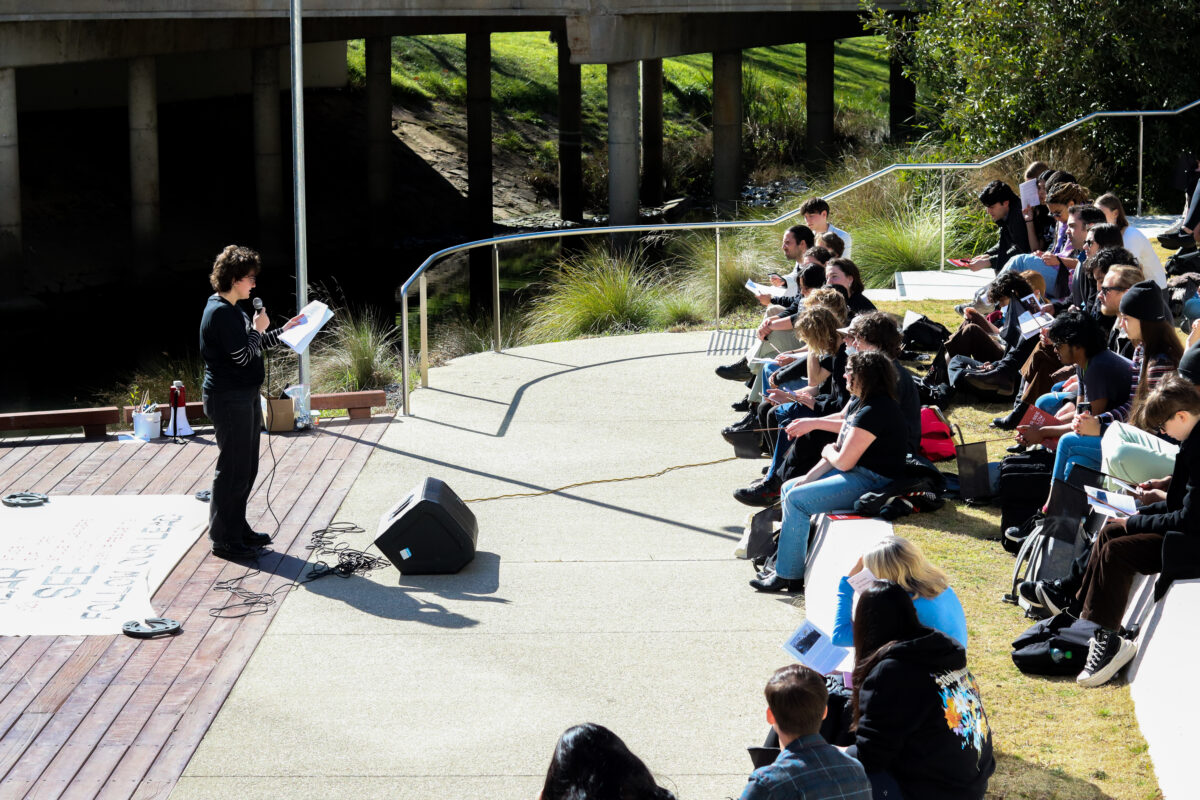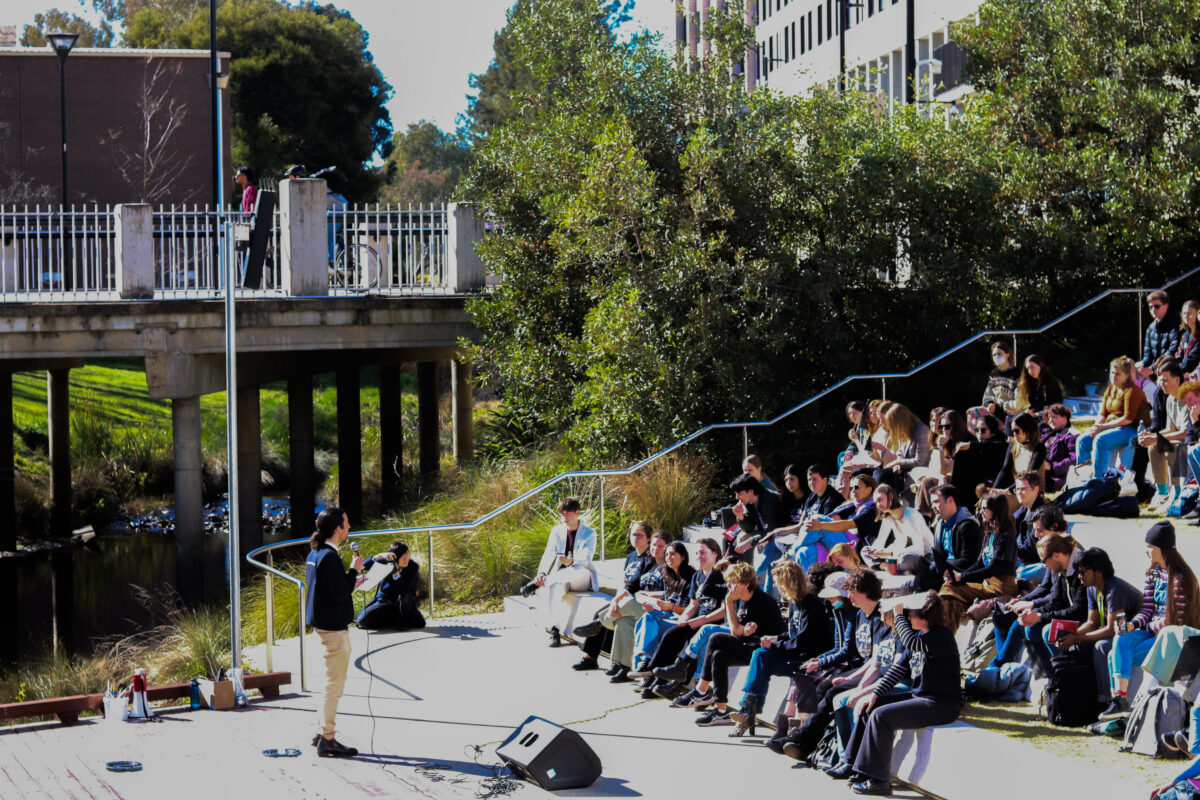August 1st 2023 marks six years since the Australian Human Rights Commission Change the Course report into sexual violence on University campuses. Since then, the ANU Women’s Department have called annual rallies to protest the ongoing prevalence of sexual assault at the ANU.
The rally began at the Kambri Amphitheatre, with speeches by members of the ANU Women’s Department and ANUSA. A large focus was placed on the ongoing need to support and listen to survivors, and anger directed at the ANU. This included criticism aimed at the University’s decision to build a new “17 million dollar carpark” and increasing residential lockout fees to $100, which advocates have argued increase instances of disclosure for victims of sexual violence. Advocates questioned the lack of adequate funding for SASH support services.

The original 2017 Report from the Human Rights Commission, which surveyed 30,000 students across 39 universities, found 1 in 5 or 21% were sexually harassed in 2016, and 1.6% were sexually assaulted. The 2022 National Student Safety Report reveals the ANU still has the second highest prevalence of sexual assault in the country, and the problem persists.
Recently, SASH issues have been raised in Parliament, with the non-profit group End Rape on Campus (EROC) submitting to the Universities Accord panel, and issuing an open letter to the Prime Minister last month, advocating for better regulation of Universities when it comes to SASH. It calls on the Federal Government to intervene to address “university failures to prevent and respond adequately to sexual violence in their communities.” The letter notes that despite university leaders claiming they have a ‘zero tolerance’ policy towards SASH, there is projected to be over 14,000 cases of SASH in the coming year, if trends continue. EROC has called for the government to establish an ‘independent oversight and accountability mechanism’ to address sexual violence and be independent of universities and residences, led by experts and have the power to compel institutions to be transparent about incidents and implement sanctions.
The recent Universities Accord Interim Report recommended the government improve university regulation, across state and territory jurisdictions, focusing on “student and staff safety.” The Government has committed to adopting this recommendation.
Part of the ANU’s formal SASH policy is its sexual violence prevention plan. At the present moment, we are coming to the end of Phase Two, which entails building infrastructure to “a greater level of sophistication and saturation” to improve reporting tools. This stage intends to make it easier for members of the ANU community to report “violent supportive attitudes and behaviours,” with a focus on intensifying efforts in clubs and residences. Phase 2 ends at the end of 2023, and Phase 3 is planned to begin immediately afterwards, focusing on continued growth until the ANU is free from sexual violence.
It is clear from the August 1st rally and the testimony from survivors that many members of the community believe the ANU has not, and is not, doing enough.
We acknowledge the Ngunnawal and Ngambri people, who are the Traditional Custodians of the land on which Woroni, Woroni Radio and Woroni TV are created, edited, published, printed and distributed. We pay our respects to Elders past and present. We acknowledge that the name Woroni was taken from the Wadi Wadi Nation without permission, and we are striving to do better for future reconciliation.
